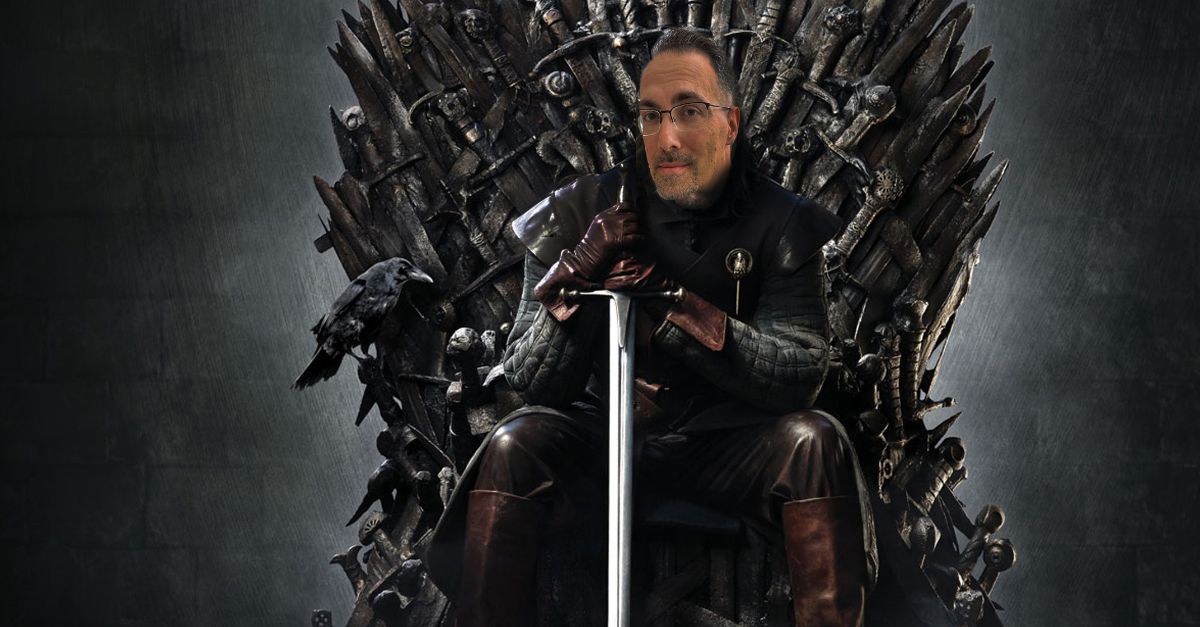
I mean, technically, winter is always coming - for everyone. But if you are Europe, there are some tough calls to make between now and then. See, all the way back in the ‘80s, Europe had a liquified natural gas (LNG) problem. That problem being, they needed it but didn’t produce enough. It happens to the best of us. The solution, at the time, was importing it from the Soviet Union. Massive pipelines were built, the Iron Curtain had some plumbing running through it, and Europe was warm in the winter and snug as the proverbial bug in a rug.
Reagan didn’t like it and warned Europe repeatedly about getting addicted to that cheap eastern LNG, sure. But did they listen? Nah.
Once the needle was in, who would say no to that sweet, sweet, affordable – available – LNG? No one, that’s who.
Of course, the Soviet Union collapsed, but Capitalist Russia was all too happy to keep the pipelines running at full tilt. After all, by the mid-90s, Russia had effectively become a petrol-state with some 60%+ of the state budget provided for by petrochemical exports. It was good for everyone, right? Globalization of the energy market was at work. Russia was a land of peace and a bright future.
Still, some people saw risks…cracks in the foundation. After Reagan, Clinton suggested Europe kick the habit, then Bush suggested it, too. Even Obama warned against the evils of Russian LNG being such a cornerstone of keeping Europe going. Annnnd nothing changed.
Then the Ukraine Invasion (or Special Military Operation™, if you’re Vladimir Putin) happened and Europe sanctioned oodles of LNG imports starting in 2020.
With nature abhorring a vacuum and money to be made, two parties jumped in to plug the gap: Qatar, the third largest LNG producer in the world, and of course the largest producer – the good ol’ U.S. of A.
Problem solved, right?
Of course not.
The European Union passed a slew of environmental laws ordering businesses to comply with net-zero targets – or else. For instance, get to Net Zero (whatever the hell that is) by 2026 or be subject to a 5% of your global annual revenue. If you’re a country like Qatar or the energy industries of the US, that’s a Big, Big, number. Potentially tens of billions of dollars. Because of the private holdings and diversified nature of the US energy industry, it will slip through relatively unaffected (for lots of boring reasons I won’t get into here). But Qatar, on the other hand, being a sovereign nation with a nationalized oil and gas industry, oh boy – they’re gonna be hosed.
And they know it too.
After the passing of the new EU energy directives, the Qatari Minister of Energy, Saad al-Kaabi, even said there was no way they were getting to the EU’s net zero targets. They were too aggressive, and it wasn’t worth the effort. And if the EU pushed on the issue, they would simply stop doing business in Europe. Well, with the due date for Net Zero looming, Qatar seems poised to ship their LNG elsewhere, and Lord knows there are plenty of interested buyers. But what does Europe do now? After all, Winter is Coming.
Well, there are a few options:
First - They can go hat in hand to Vladimir, look up over their lifted soup bowl and say, “Mr. Putin, more please?” Which, given the state of the Ukraine War and the almighty mountain of sanctions Europe placed on Russia and the bevy of military gear they’ve shipped to the Ukrainians…yeah, probably not happening.
Secondly, they can buy more from the US. I mean, as an American in the Energy Industry, I sure like that one. But many of Europe’s politicians are finally learning the lesson that Reagan, and so many others, have tried to impart for so many years. All this pain is because of their over-reliance on a single source of LNG. Buying even more from the USA would put the whole of Europe deeply in the pocket of the US, especially at a time when US/Euro relations are, let’s just say, a little more erratic than usual. It’s a tough pill for some to swallow.
Third – get the EU to scrap their demands for net zero or push them out. And mind you, Qatar has made it clear, a one or two-year extension isn’t going to do the trick. If they want to keep Qatari imports flowing, the laws need to either go away or get pushed so far out as to be completely pointless. Maybe sometime in the next century or so. This seems like the obvious and easy answer but getting the EU Parliament to do a 180 on an initiative like that will be a massive undertaking. Never mind, with so many European politicians campaigning on the net-zero promises, it might well be political suicide to back down now. Only the electorate can know for sure.
Fourth – and lastly – they can just suck it up and have a chilly winter. Keep the EU laws firmly in place, refuse to buy more US imports (or anyone else’s for that matter), and literally weather the winter. Will the industry slow down? Sure. Will people get a bit brisk during the darkest months…probably. Will it lead to a winter recession in Europe? Yes, maybe. But at least they can be kept warm by the knowledge that they stuck to their guns on net-zero. Who knows, maybe a cold winter might cause a sudden shift in the electorate away from net-zero policies. After all, it’s easy to vote for them when you aren’t having to unironically burn trash in an oil drum for warmth.
What will Europe do? No idea. If it were me, I’d change the laws and try to figure it all out later. Like, maybe when there isn’t a land war in the Ukraine or a nuclear proliferation threat from Iran.
Whatever they decide will be interesting and have some ripple effects both in the US market as well as globally. And whatever route they go down, they’d better figure it out fast. It’s the cusp of August now, but 2025 has somewhere to be, and after all – Winter is Coming.
related articles








